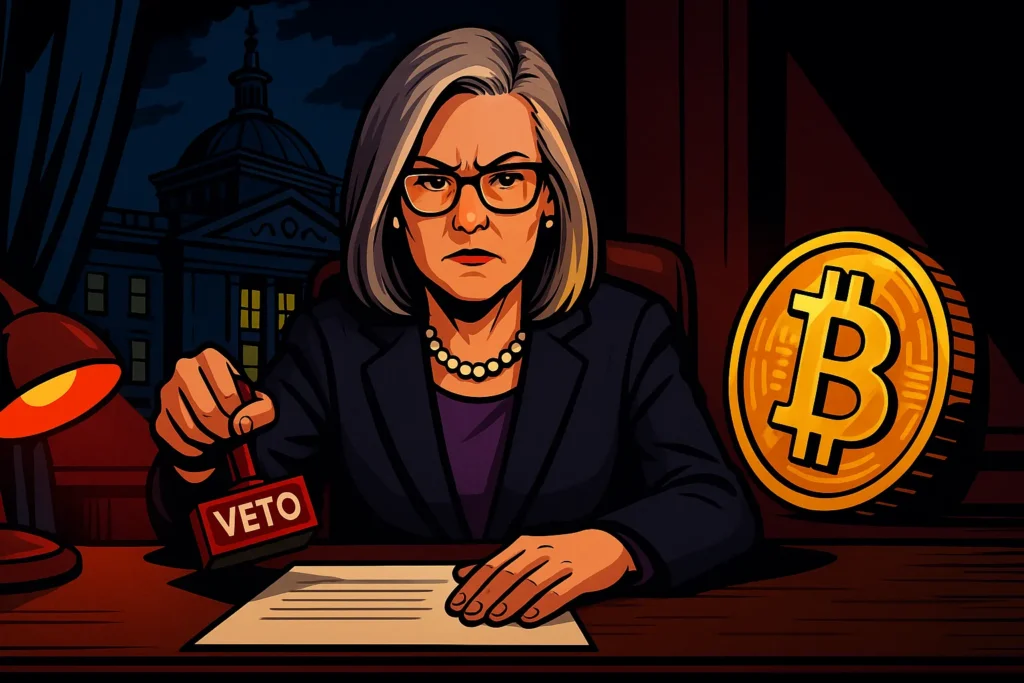Bitcoin Reserve Bill Faces Setback in Arizona
Arizona’s ambitious plan to establish a Bitcoin reserve encountered a significant hurdle when Governor Katie Hobbs vetoed Senate Bill 1025. The bill, known as the “Arizona Strategic Bitcoin Reserve Act,” aimed to allow public funds, including the State Treasurer and retirement systems, to invest up to 10% of their assets in digital currencies like Bitcoin. Despite bipartisan support in the legislature, the governor’s decision underscores a cautious approach to integrating cryptocurrencies into public finance.
Governor’s Concerns Over Investment Risks
Governor Hobbs justified her veto by labelling cryptocurrencies as “untested investments.” She emphasised the need to protect the Arizona State Retirement System (ASRS) from potential financial instability. In her statement, she asserted that Arizonans’ retirement funds should not be exposed to the volatility associated with virtual currencies. This stance aligns Arizona with other states that have rejected similar initiatives, reflecting a broader skepticism about the role of digital assets in public funds.
Bitcoin Reserve Bill’s Provisions and Objectives
The Bitcoin Reserve Bill proposed several key measures:
- Investment Authorisation: Delegation of public funds may invest up to 10% of their assets in virtual currencies.
- Strategic Reserve Fund: Designation of a Digital Assets Strategic Reserve Fund for the management and storage of seized cryptocurrency assets.
- Federal Integration – Allowing for the storage of virtual currencies in a segregated account within any potential federal strategic Bitcoin reserve, should one be created.
Such regulations would make Arizona a leading contender in digital asset laws, and that would lead to more innovation and money coming to the state, they said. Bitcoin was seen as a hedge against inflation and a way to diversify public assets.
Bitcoin Reserve Bill’s National Implications
Arizona’s efforts are part of a bigger trend taking place around the country. States such as North Carolina and New Hampshire have already passed legislation allowing limited investment in crypto assets. Senator Cynthia Lummis introduced the BITCOIN Act to establish a national strategic Bitcoin reserve through optimized investments nationwide.
The legislation would require states to acquire up to 1 million Bitcoins over a certain time frame, much like the U. S. gold reserves.
Despite these initiatives, many policymakers reject the idea of using cryptocurrencies as a public financing mechanism. Proponents fear their use could be volatile, carry no intrinsic value and allow hackers to access their unique fingerprints. Governor Hobbs’ veto shows that fear. He may encourage other states considering similar legislation.
